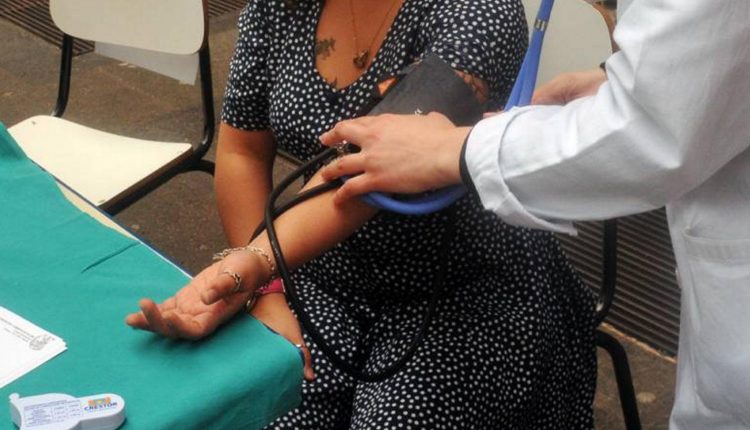
In Ukraine, the Ministry of Health explains what to do with a hypertensive crisis in wartime
A hypertensive crisis is a sudden increase in blood pressure, when systolic blood pressure rises by 20-100 mm Hg and diastolic – by 10-50 mm Hg. or up to 210/120 mmHg Stress, panic, anxiety: all these can cause a hypertensive crisis
The Ukrainian Ministry of Health’s indications in the event of a hypertensive crisis:
It is very important to prevent a hypertensive crisis in time and to do everything possible so that it does not develop.
After all, it can cause many serious complications: stroke, heart attack – angina pectoris, myocardial infarction, coma, pulmonary oedema, acute heart failure, encephalopathy, eclampsia in pregnant women, bleeding, heart rhythm disorders.
Patients should independently monitor their blood pressure to detect even a slight increase in time.
Hypertensive crisis, the Public Health Centre of the Ministry of Health of Ukraine recommends:
- monitor blood pressure daily;
- regularly take an antihypertensive therapy chosen by the doctor;
- cope with anxiety and stress;
- stop smoking and drinking alcohol;
- limit salt intake to 5 g/day;
- reduce consumption of saturated fat and processed meat;
- check your BMI (the ratio of your body weight in kg to the square of your height in metres);
- regulate your weight
- replace high-calorie foods with low-calorie foods,
- don’t forget aerobic physical activity (as much as possible under martial law and hostile conditions).
How to provide first aid in a hypertensive crisis
Professional medical assistance is necessary if your blood pressure rises to 180 or more and you are unable to stabilise it on your own.
Everything must be done consciously and step by step.
What we need to do:
- Open all the windows in the room to provide enough oxygen and fresh air.
- Assume a comfortable, relaxed, semi-sitting position. This posture normalises the blood circulation processes and reduces the load on the cardiovascular system.
- Take an antihypertensive medication that is part of your hypertension treatment regimen. Tablets should be placed under the tongue and held until completely dissolved.
- If there is no improvement after half an hour, you can take the drug again from the list, but, in general, no more than 2 times!
- Try to normalise your breathing by inhaling and exhaling slowly and deeply.
- With a frequent heartbeat, it is advisable to take a sedative under the tongue.
- Make a warm compress on the shins, apply mustard plasters to the cervical-occipital area or a warm footbath. This procedure will cause an increase in blood flow to the lower limbs, which will reduce the pressure in the heart area and reduce the risk of developing a heart attack.
- After 30 minutes, measure your blood pressure and, if it has not decreased by 10-20 units, drink another tablet of the antihypertensive drug.
It is advisable to measure your blood pressure every 15 minutes, recording the values as well as the time you took the medication.
This information will be useful to doctors if you need to seek professional medical help.
Read Also:
Emergency Live Even More…Live: Download The New Free App Of Your Newspaper For IOS And Android
Ukraine Under Attack, Ministry Of Health Advises Citizens About First Aid For Thermal Burns
Ukraine Under Attack, Rescuers’ Instructions To Citizens In Case Of Building Or House Collapse



